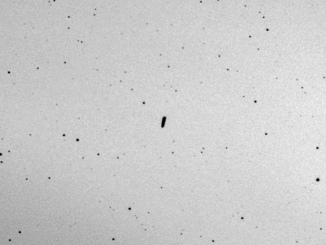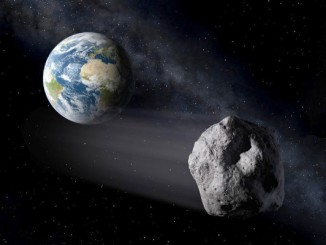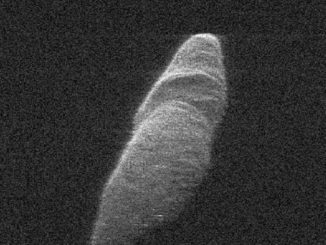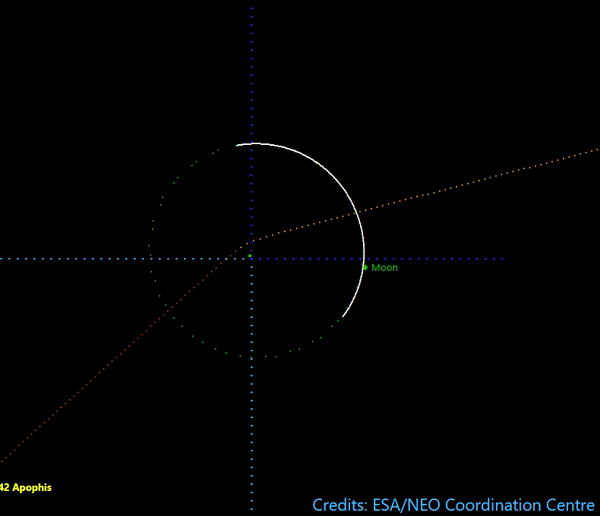
Just in case it was on your list of things to worry about, new observations of the asteroid Apophis have ruled out any chance of an Earth impact for a least a century. As a result, the European Space Agency has removed the 350-metre-wide (1,100-foot-wide) asteroid from its “Risk List” of solar system bodies that pose a non-zero chance of hitting Earth.
Of course, that still leaves more than 1,140 known objects that post at least a theoretical threat at some point in the future! But Apophis no longer appears to be a near-term risk.
Discovered in 2004, astronomers calculated two impact possibilities in 2029 and 2036, but additional observations ruled those out. A small chance remained for 2068, but new radar observations in early March at NASA’s Goldstone Deep Space Communications Complex in California and the Green Bank Observatory radio telescope in West Virginia produced enough tracking data to rule out an impact for at least the next century.
Apophis will pass within about 35,000 kilometres (21,750 miles) of Earth on 13 April 2029, 10 times closer than the moon and visible to the unaided eye. Earth’s gravity will affect the asteroid’s orbit and before the March observations, there was still a chance, albeit remote, for a possible impact in 2068.
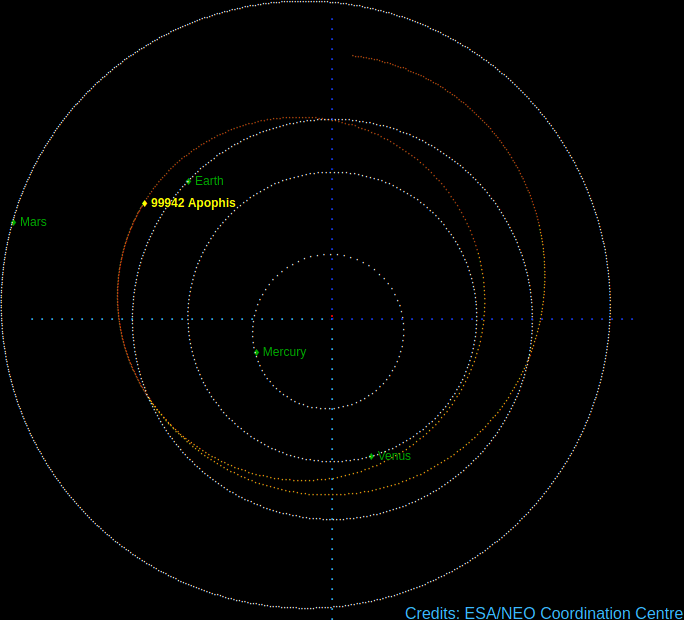
“With the support of recent optical observations and radar observations, the uncertainty in Apophis’ orbit has collapsed from hundreds of kilometres to just a handful of kilometres when projected to 2029,” said Davide Farnocchia of NASA’s Center for Near Earth Object Studies.
Even with Earth’s gravitational influence during the 2029 flyby, the latest observations show no potential impacts for at least the next century.
“The discovery of Apophis and early work done to track and understand its orbit, occurred when today’s Planetary Defence activities were still in their infancy,” said Juan Luis Cano from ESA’s Near-Earth Object Coordination Centre.
“That this happened at such an early period in the discipline served as strong motivation to improve our capabilities to accurately predict the motion of these interesting and potentially dangerous objects. With today’s removal of Apophis from the Risk List, we are closing a very enlightening chapter in the history of Planetary Defence.”

